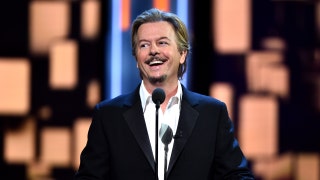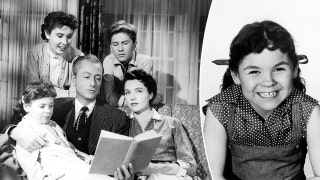Elvis Presley’s stepbrother says he spoke of God’s forgiveness before his death: ‘In touch with the Lord’
Author Billy Stanley spoke to Fox News Digital about how Elvis Presley, a "proud patriot," never lost his faith in God.
When Colonel Tom Parker died in 1997, the former carnival pitchman who guided Elvis Presley to stardom was reviled for reportedly exploiting the "poor country boy" who became King.
But in his final months, the infamous manager wondered what could have been.
"He loved Elvis like a son," Greg McDonald told Fox News Digital. "The Colonel never wrote a tell-all, even after these negative stories came out about him. He refused. And when I saw Baz Luhrmann’s film, I knew somebody had to come out and finally tell the truth."
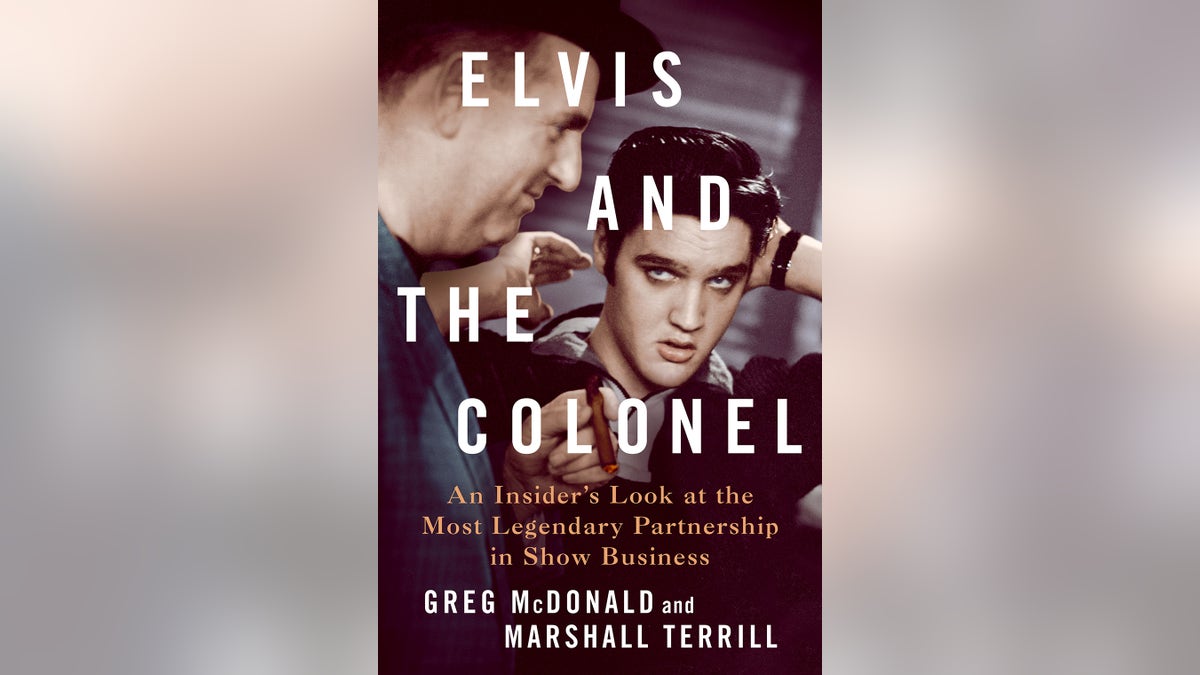
Greg McDonald and Marshall Terrill have written a new book, "Elvis and the Colonel: An Insider's Look at the Most Legendary Partnership in Show Business." (St. Martins Press)
McDonald, who worked for Parker, has co-written a book, "Elvis and the Colonel: An Insider’s Look at the Most Legendary Partnership in Show Business." The entertainment producer, who knew both men, wanted to set the record straight about their relationship. McDonald currently manages Parker’s assets.
"Everybody depicts the Colonel as this bad guy, but if Elvis Presley was standing in the room right now, and somebody in the room said something bad about the Colonel, they’d get thrown out of the room. They loved each other, but they had a tough relationship toward the end because Elvis wasn’t doing well, and the Colonel was worried about him."
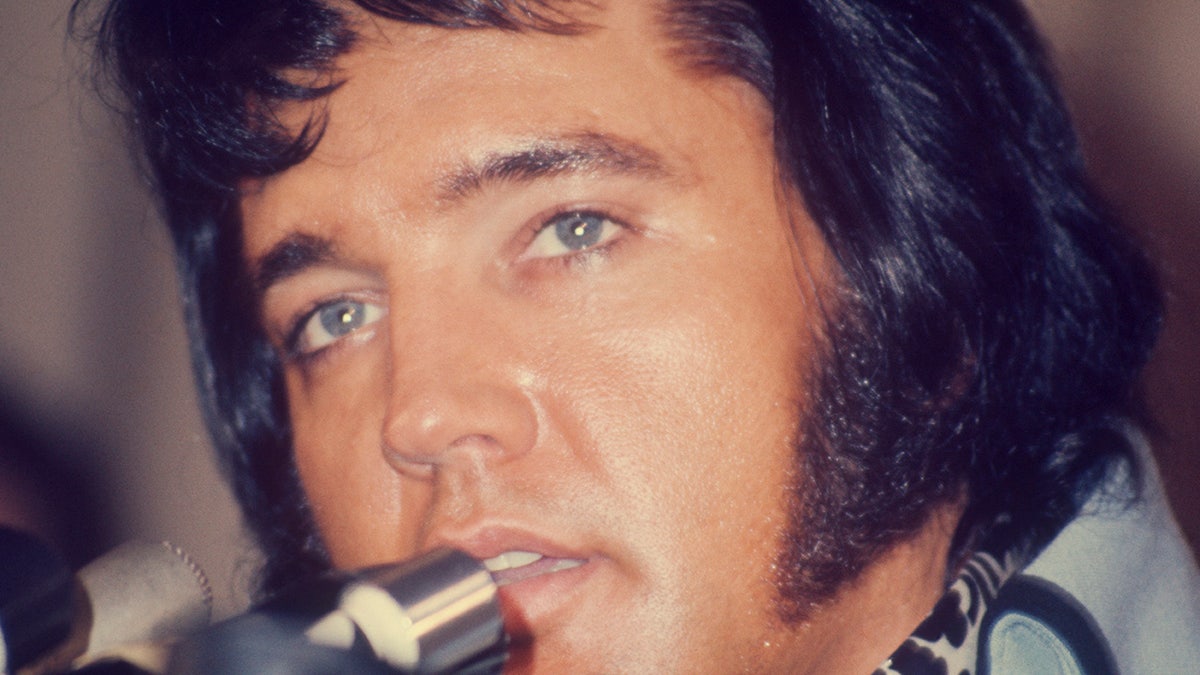
"Nobody could say no to Elvis Presley," said Greg McDonald. (Art Zelin/Getty Images)
Presley was 42 when he died in 1977 at his home, Graceland. Shortly before his death, the former teen idol with the movie star looks and gyrating hips was a shell of his former self. He was bloated, had complained of persistent aches and pains and struggled with insomnia as he embarked on grueling tours.
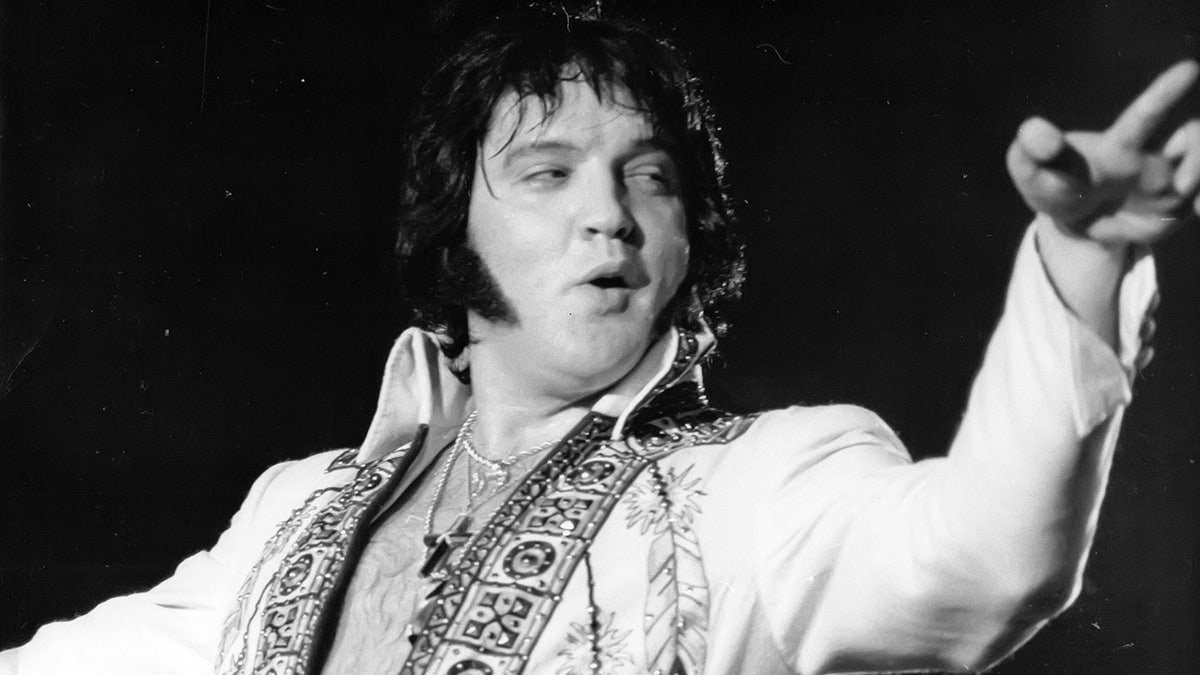
Elvis Presley in concert, circa 1977. The singer died on Aug. 16, 1977. He was 42. (R.D/Images Press/Getty Images)
It was no secret to those who knew Presley that he had a growing dependence on prescription drugs – and Parker knew it.
"There were no Betty Ford Centers," McDonald pointed out. "There were no rehabs that were respectable to go to if you were a big star like Elvis. They just didn’t exist. And when Elvis was in Graceland, he’d hide for weeks at a time. It wasn’t healthy. People would say, ‘You’ve got to get him out of the house and get him on the road, so he’ll quit this.’"
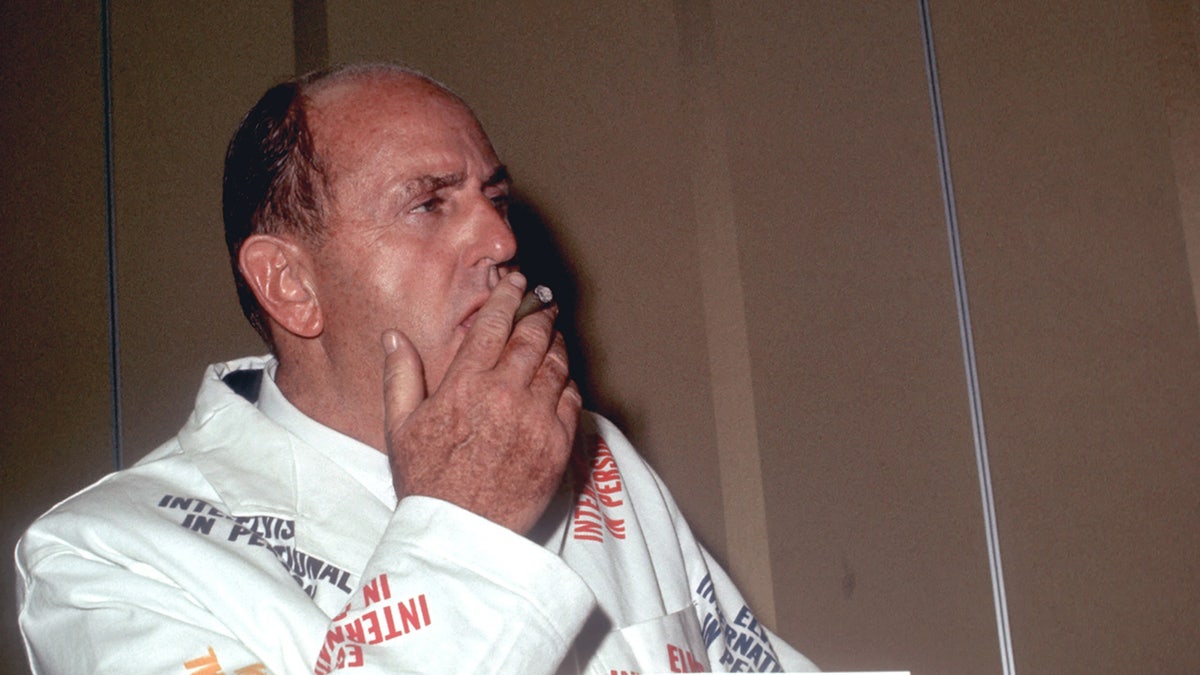
Colonel Tom Parker, circa 1970. Greg McDonald scoffed at claims that Parker took 50% of everything Elvis Presley earned. "That's just not true," he said. (Michael Ochs Archives/Getty Images)
"The Colonel would tell him he needed to get his act together," McDonald continued. "But this was Elvis Presley, and he knew who he was. And if you walked up to Elvis and told him, ‘You’ve got to quit doing drugs,’ he would throw you out of his house, no matter how fond he was of you. Can you imagine going up to Elvis and telling him, ‘You’ve got to quit taking pills?’ This was the king of rock ‘n’ roll, and he knew it. He would tell you, ‘If you can’t find me something, I’ll buy a drugstore.’ He wasn’t kidding. You just didn’t talk to him that way. The Colonel certainly didn’t talk to him that way."
CLICK HERE TO SIGN UP FOR THE ENTERTAINMENT NEWSLETTER
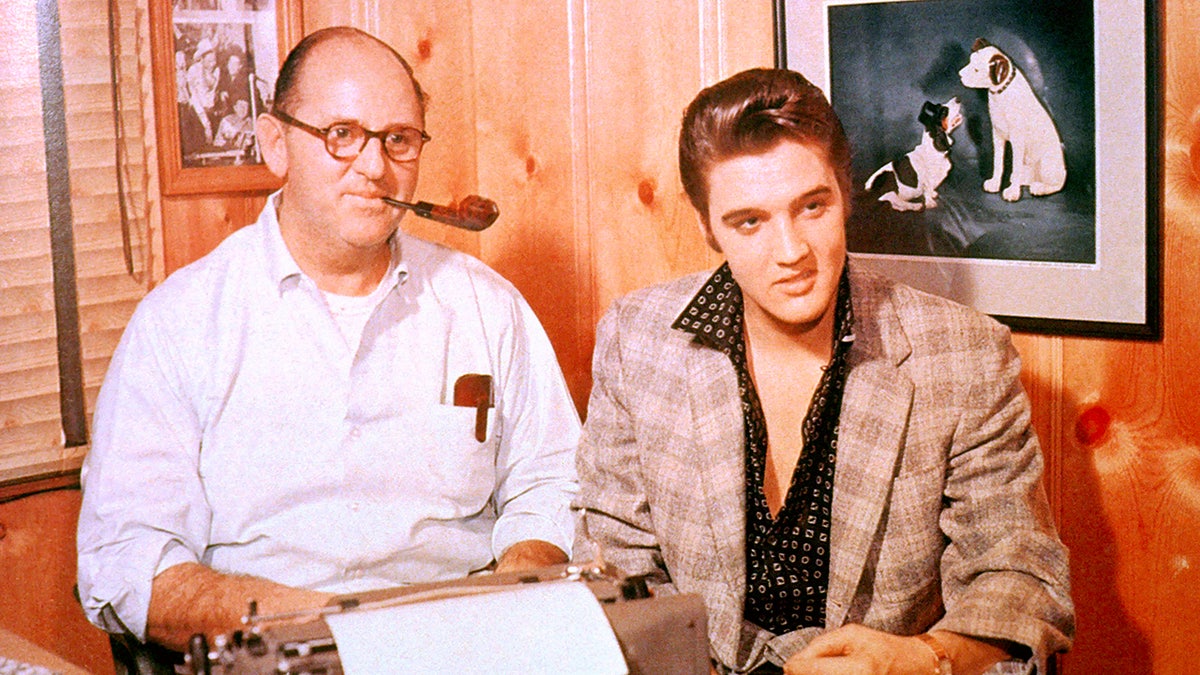
Colonel Tom Parker with a young Elvis Presley, circa 1956. (GAB Archive/Redferns)
"He was not easy to handle," McDonald admitted. "He was wonderful. He was a good guy. But he just knew who he was. If you walked up to Elvis and told him, "You’re doing too many pills,' good luck."
According to McDonald’s book, Parker refused to believe for years that Presley had "a serious problem with prescription drugs." But by mid-1973, Parker accepted the fact that something was wrong with Presley.
McDonald noted that Presley attempted to combat his weight gain by taking diet pills prescribed to him by Dr. Max Jacobson, nicknamed "Dr. Feelgood" by his celebrity patients.

Elvis Presley in Las Vegas during a concert, circa 1975. It was no secret that Presley had a growing dependence on prescription pills. (Michael Ochs Archives/Getty Images)
"Elvis received industrial-sized jars of pills from Jacobson in every color, shape and size that could send someone in any direction they wanted to go: up, down or out of your mind," McDonald wrote. "It was all heavy-duty stuff that could only be obtained by prescription."
Reuters reported that Presley’s physician, Dr. George C. Nichopoulos, known as "Dr. Nick," dispensed "thousands of doses of prescription drugs" to the singer in the final decade of his life. According to the outlet, Nichopoulos prescribed Presley painkillers such as Quaaludes, Demerol, Codeine, Percodan, and Dilaudid, as well as "a variety of stimulants and sedatives."
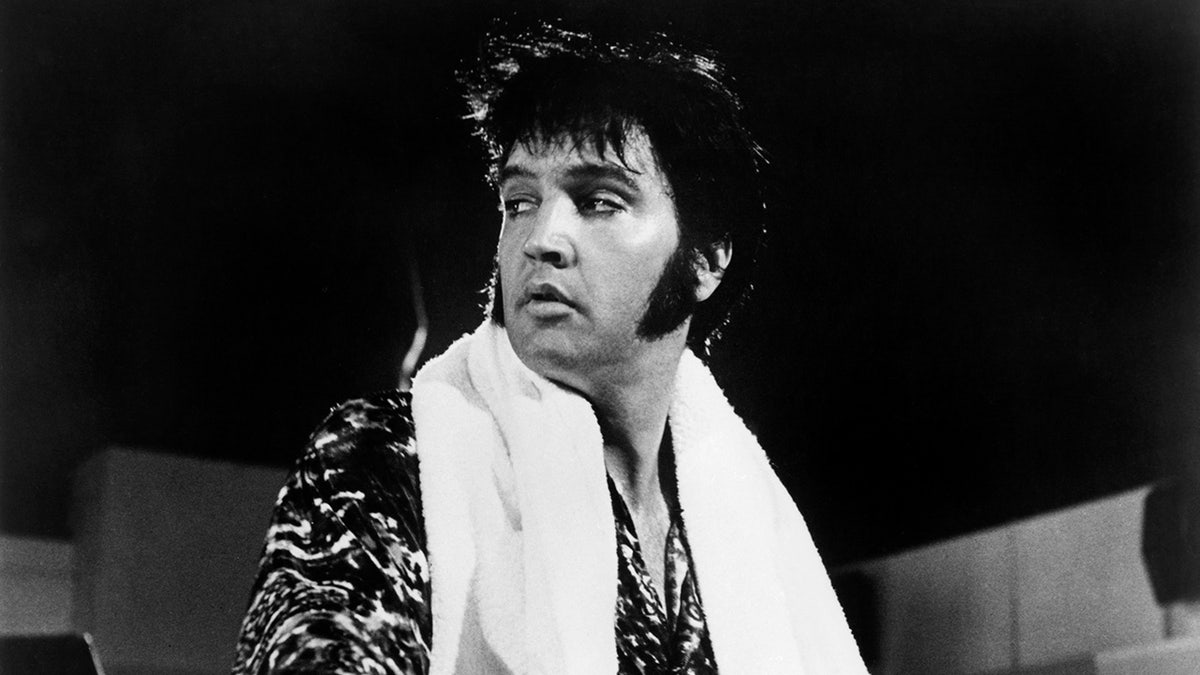
Greg McDonald believed that it's likely Elvis Presley didn't think he had a problem because the pills he was taking were prescribed by doctors. (Grant Goddard/Redferns)
McDonald wrote that one of the bottles of prescription pills had a handwritten label that read, "to keep sanity."
Presley’s performance on stage was also being impacted by his drug use, McDonald wrote. He claimed that at one point, Presley "slurred his words, forgot lyrics and occasionally had to resort to cue cards to get through songs, when and if he felt like completing them."
CLICK HERE TO GET THE FOX NEWS APP
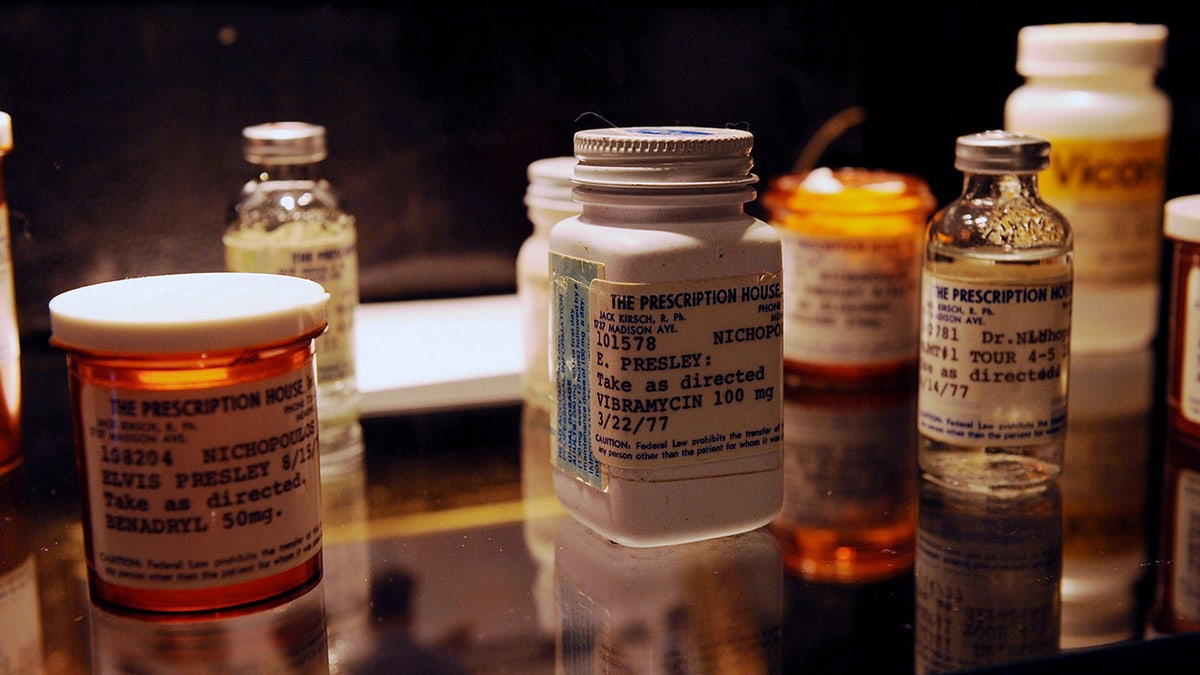
Prescription bottles once belonging to Elvis Presley are seen on exhibit ready to be auctioned in 2009. (Denise Truscello/WireImage)
A frustrated Parker said, "I’ve had it! I’ve put up with this nonsense for years, but this is too much. No more. Either he straightens out or we’re finished. If he can’t stop taking those damn pills, then there is nothing more I can do and I’m getting out. I don’t need this c---. I’m quitting."
But Parker wanted to help, McDonald stressed. And he had one last idea.
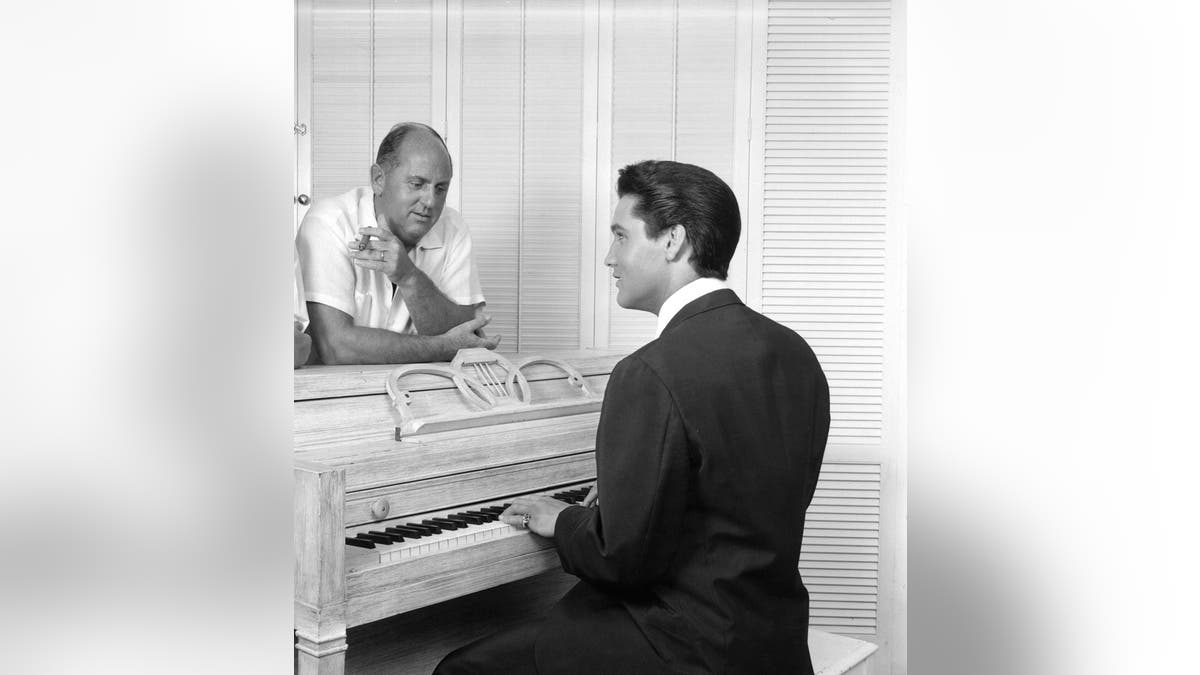
Elvis Presley is seen here playing gospel music to Colonel Tom Parker during the early years. (Courtesy of Joseph A. Tunzi/JAT Publishing)
"The Colonel and I were down in San Diego at one of the big buildings where Elvis was appearing," McDonald recalled. "Billy Graham was there for several days. He had a 100-piece choir… There must have been 50,000 people… On our way home, the Colonel said, ‘The thing Elvis loves the most in his life is gospel music. And if he had a 100-piece choir like Billy Graham and only did gospel music… It might save his life.’"
"The Colonel knew Elvis needed something more than Vegas and the regular rock ‘n’ roll tours," McDonald shared. "He knew that Elvis loved gospel music. He loved it better than anything… The Colonel knew Elvis was at risk. He felt that gospel music would save him."
Presley was eager to return to his gospel roots. But the entertainer died before Parker’s plan came to fruition.
LIKE WHAT YOU’RE READING? CLICK HERE FOR MORE ENTERTAINMENT NEWS
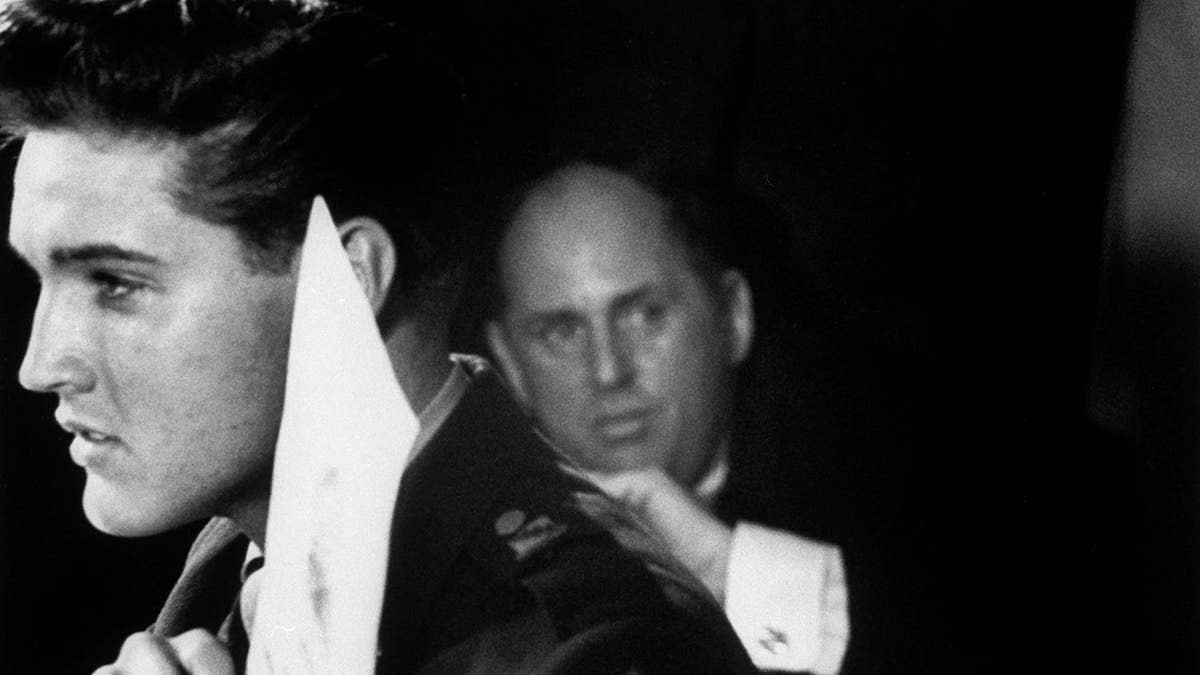
According to Greg McDonald, Colonel Tom Parker believed that gospel music would save Elvis Presley's life. (Lee Lockwood/Getty Images)
"Gospel represented everything that Elvis loved," said McDonald. "And he was really excited about the idea. It made him feel hopeful."
Presley died from a heart attack likely brought on by his addiction to prescription barbiturates.
McDonald stressed that Presley opposed hard drugs. He noted that Presley likely felt he didn’t have a problem because the pills he was taking were prescribed by doctors and aimed at addressing ailments he was facing.
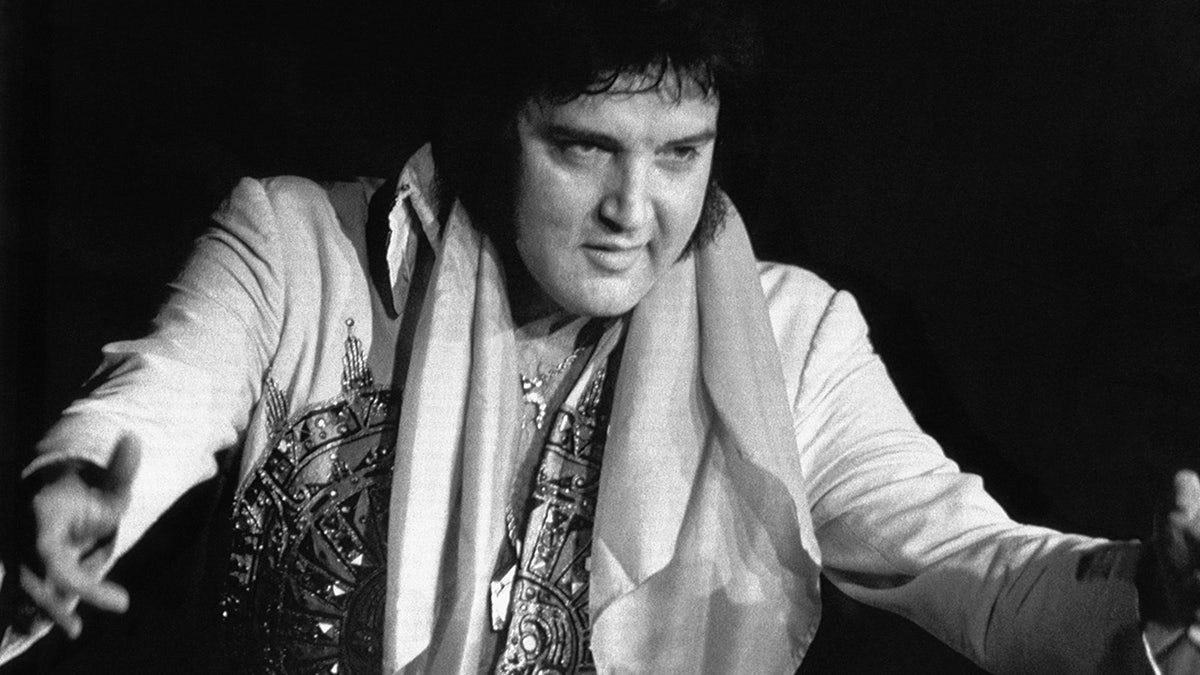
While Elvis Presley struggled with prescription pills, Greg McDonald stressed that the singer never used hard drugs. (Getty Images)
"I never saw him smoke pot," he explained. "I never saw him do any illicit drugs – ever. I knew he did a lot of prescription drugs – everyone knew that. But he was really hostile against illegal drugs. He had problems, but I never saw him do drugs in all the years that I knew him… I think what killed him was prescription drugs."
The Tennessee Board of Medical Examiners later suspended and ultimately revoked Dr. Nichopoulos' medical license after it ruled he had over-prescribed potentially addictive drugs to 13 patients, including Presley.
A jury in 1981 acquitted Nichopoulos of criminal charges of indiscriminately and negligently prescribing drugs to Presley. In a 2009 interview with The Commercial Appeal, Nichopoulos said, "I don’t regret any of the medications I gave him. They were necessities."
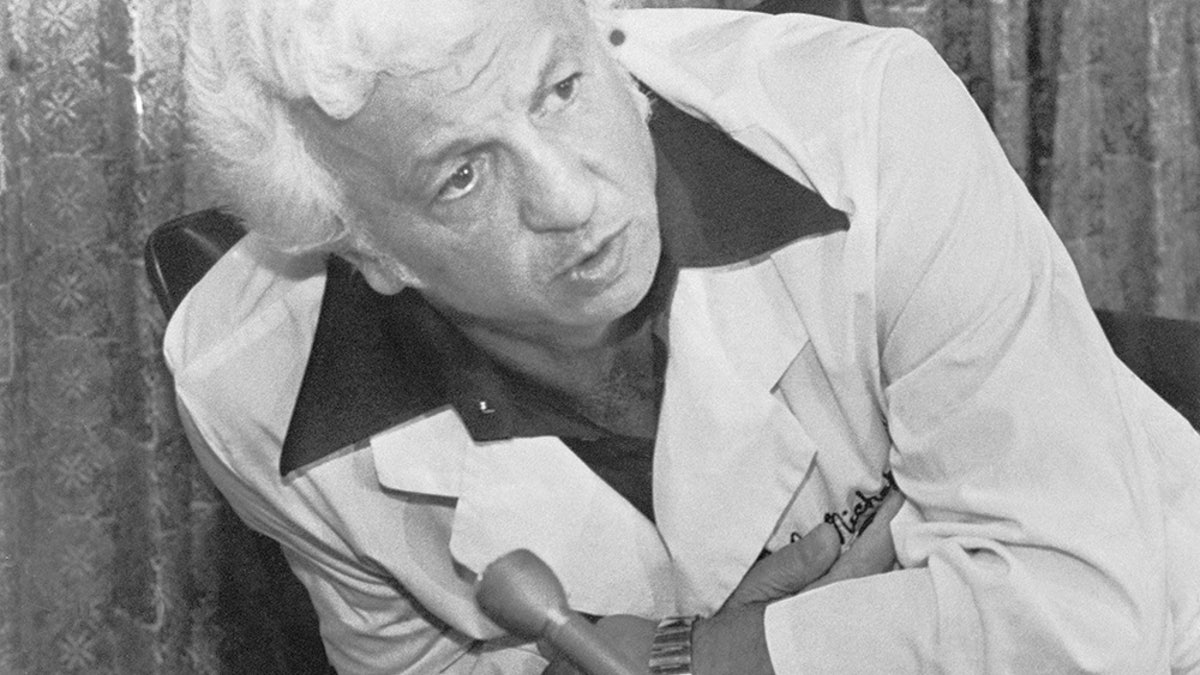
Dr. George C. Nichopoulos, personal physician of Elvis Presley, confirmed the death of the king of rock ‘n’ roll at a hospital news conference. (Getty Images)
Nichopoulos died in 2016 at age 88.
"The Colonel had nothing to do with drugs or pills," said McDonald. "The reason why Elvis worked too much was because he spent every dollar he made. He was constantly overdrawn on the bank. He didn’t have the option of saying, ‘I don’t want to work this month.’ He had a giant overhead and a lot of people working for him who depended on him. And he was very generous. If you liked a car, he would just give it to you."
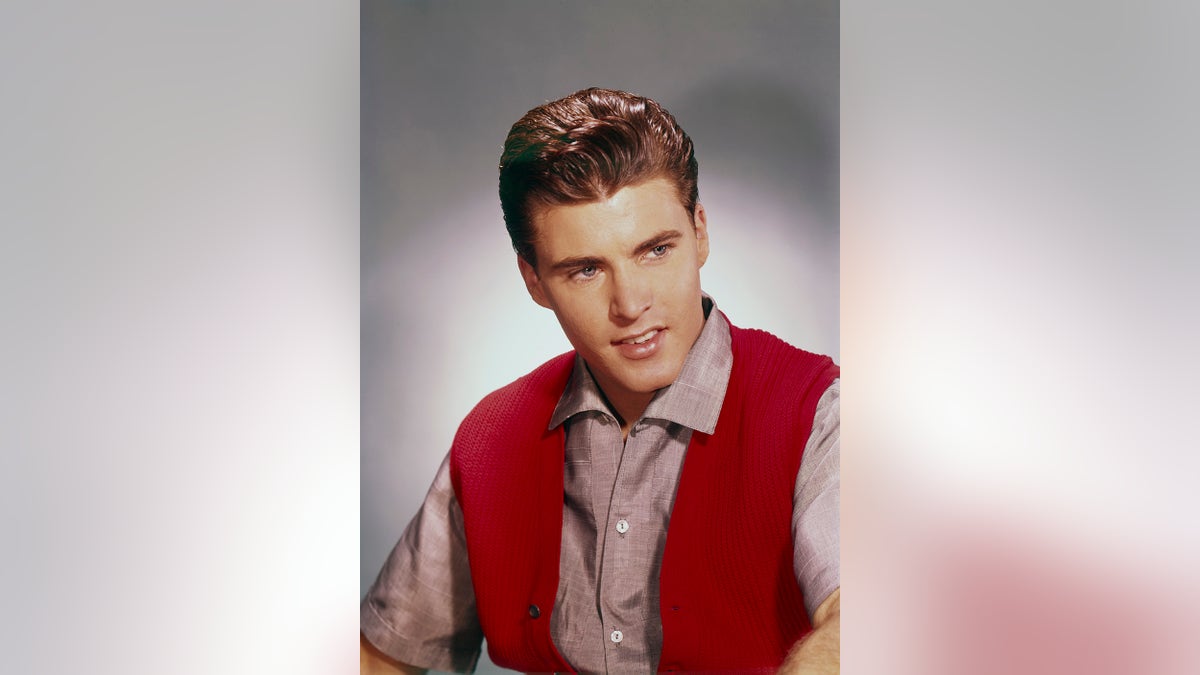
Greg McDonald went on to manage Ricky Nelson (seen here) for 17 years. He also ran Sonny Bono’s mayoral and congressional campaigns. (Archive Photos/Getty Images)
"He would often call the Colonel and say, ‘We’ve got to book something.’ The bank would call him and Presley’s father would then call and say, ‘We’ve got to raise some money.’"
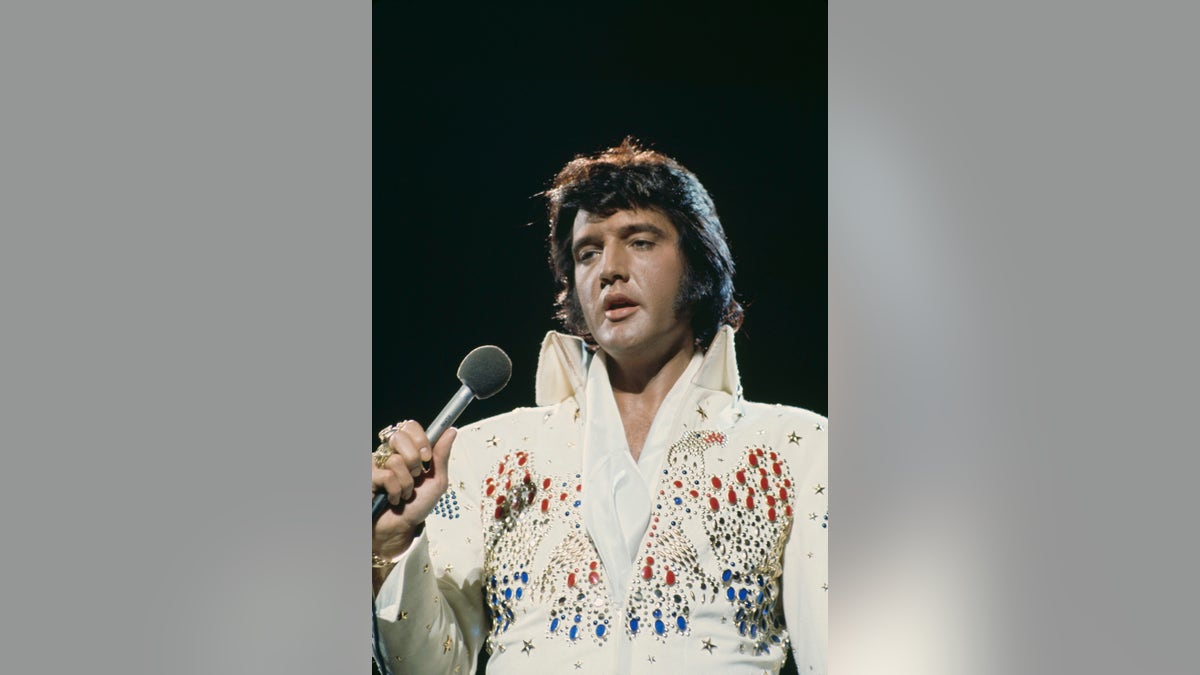
Greg McDonald said Colonel Tom Parker never got over Elvis Presley's death. (Fotos International/Archive Photos/Getty Images)
"People say Elvis was worked to death – that’s just not true," McDonald added.
Over the years, Parker spoke of Presley "constantly," even in the months leading up to his death, McDonald claimed.
Parker once admitted, "There’s not a day I don’t think about him. A lot of days I cry."
"He felt like he did everything he could," McDonald explained. ‘He would have done anything for him. He cried like a baby – but people didn’t see that. And even when people were saying bad things about him, he never spoke out… He was not the guy that everyone thinks he is."
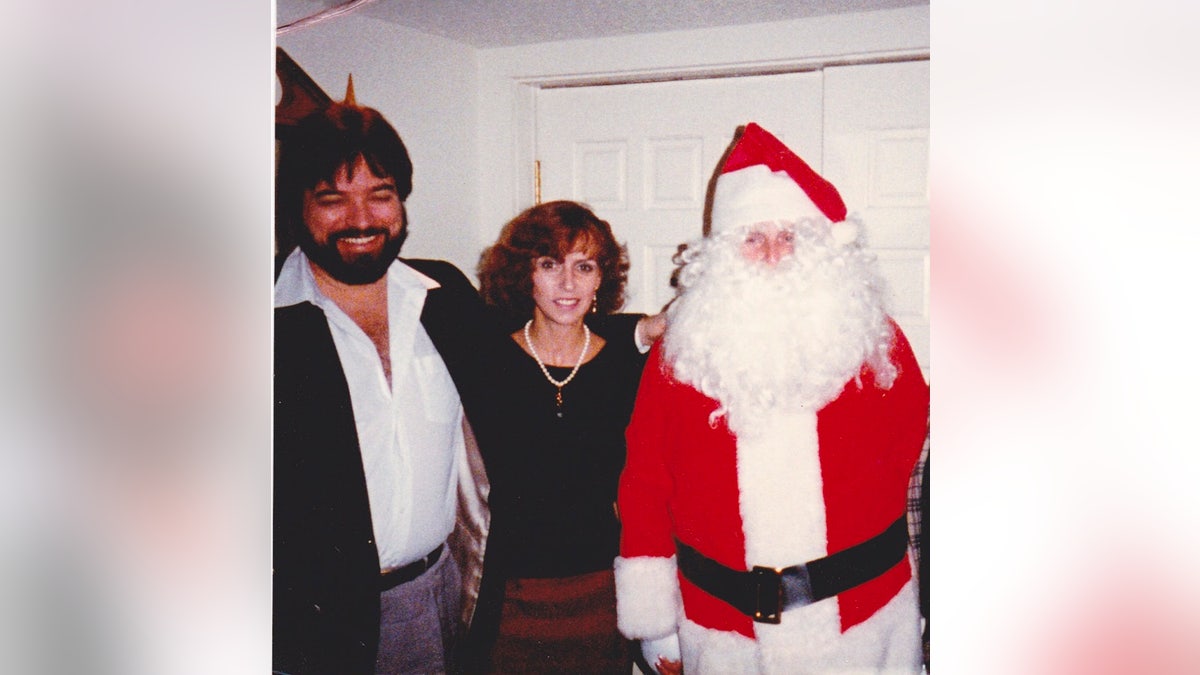
Colonel Tom Parker is seen here dressed as Santa alongside Greg McDonald and his wife. Parker died in 1997 at age 87. (Greg Marshall)
"The Colonel was not a crook – he was worried about Elvis, and he loved that boy," said McDonald. "He tried his best. And Elvis was a good guy. He just had a lot of problems."
The Associated Press contributed to this report.


